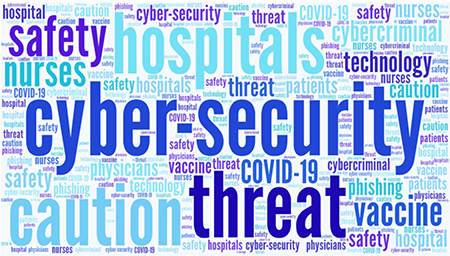During the past year, 412 healthcare organizations reported having experienced cyberattacks which affected over 20 million patients nationwide. Russian cybercriminals have been identified as the likely source of many of these cyberattacks, holding hospitals’ data hostage in exchange for multimillion-dollar ransom payments. A month and a half ago, the F.B.I., the Department of Health and Human Services and the Department of Homeland Security’s Cybersecurity and Infrastructure Security Agency released a warning statement to hospitals and research institutions about a “credible threat” of cyberattacks.

Cyberattacks during COVID-19
Hospitals today rely on technology more than ever before to confirm diagnoses, check protocols, keep records, and provide life-saving treatment to patients. Without access to this technology due to a cyberattack, no matter how temporary, there are severe setbacks in hospitals as nurses and physicians do their best to recreate charts and treatment protocols from memory. Meanwhile, information technology professionals work as efficiently as possible to rebuild and clean servers. The University of Vermont Medical Center was one of many hospitals targeted with a cyberattack in October 2020, and they have yet to fully recover. The attack affects the quality of care that they can provide, as well as limits their patient capacity. It also restricted the UVM Medical Center to the extent of having to turn down about three quarters of their chemotherapy patients. Sadly, they’re not the only healthcare organization to have endured attacks like this. Now, cyberattacks have become geared more towards intercepting the COVID-19 vaccine.
As biotech companies get closer to distributing a viable vaccine for SARS-CoV-2, various complex phishing campaigns have surfaced with the goal of interfering with the vaccine supply chain. Coronavirus strategist at IBM’s cybersecurity agency, Josh Corman, urges organizations involved in vaccine storage and transport to “harden attack surfaces, particularly in cold storage operation.” As of now, Pfizer and Moderna, whose COVID-19 vaccines are expected to be the first approved, are seemingly not targeted by cyberattackers. In doing their best to ensure cybersafety, Pfizer’s cold storage equipment was designed by security-conscious experts. Cyberattackers are trying to steal valued vaccine and health information from hospitals, universities and research labs, making now the time to take extra precautions to provide the ultimate protection to our patients.
